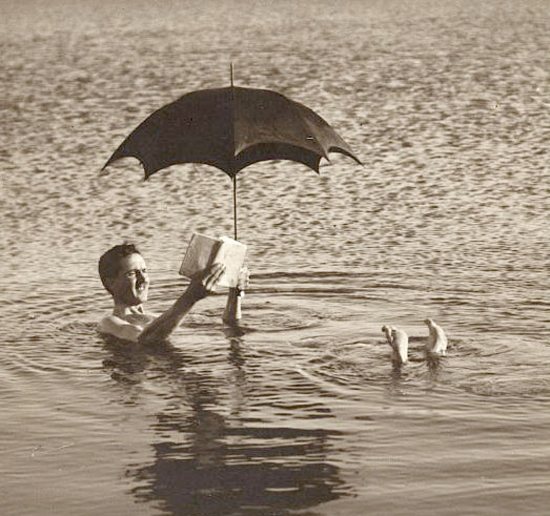Last month Waterstones – the UK’s pre-eminent high street bookseller – was sold to a Russian billionaire businessman for £53 million. That’s only £3 million more than Chelsea paid for Fernando Torres.
The fate of Waterstones up until that point was intertwined with that of the UK music industry: its previous owners, the HMV Group, seem to be in terminal decline. The great fear was that the book chain would be reduced in number so that they would become relic destinations, great cathedrals of the printed word. The ‘Special One’ appointed to take Waterstones forward is James Daunt, who has been running his own chain of independent bookshops (they take his name) in London. He has a job to do scaling up his local-bookseller-for-local-people model for Waterstones’ 200-plus stores.
The publishing industry is behind Daunt, but Waterstones has been under a lot of strain, with sales down four percent year-on-year. It is being squeezed on either side by the supermarkets and online retailers. The industry’s trade awards bestowed Bookselling Chain of the Year on Sainsbury’s (an award sponsored by mega-seller Martina Cole) and gave the Direct Bookselling award to Amazon. Their formidable armoury can draw on aggressive pricing, use of loss leaders and (in Amazon’s case) massive range.
It gets worse. Ten years on from the Battle Of Napster, the book world is experiencing the most significant format shift since the introduction of the paperback, with ebooks this year accounting for about 10 percent of frontlist sales (it’s a bracing increase: ten times where we were last year).
To the uninitiated, there’s something beautifully insane about the book industry’s format lives. Six months to a year in hardback (or maybe a large format paperback) before the small B-format, or smaller still A-format, mass market editions. It’s a regime that ebooks are upending.
Amazon’s Kindle has come to dominate the ebook space, holding all before it, when perversely Apple, whose iTunes platform made over the music industry, is having to work hard to gain on its 10-15 per cent market share with iBooks.
The music industry’s mistakes in this area are heads on spikes for the book industry. As Wyndham Wallace said in the piece of Black Sky Thinking that prompted this one: "the question as to why a download should cost much the same as a physical product has never been satisfactorily answered and has further undermined trust between the provider and the consumer."
Open hostility rages on Amazon forums and review pages about this issue and the bestseller list for Kindle is dominated by low price crime and thriller publishing – where only the powerhouse of Stieg Larsson, news event s like Kate McCann’s Madeleine and TV tie-ins like Game Of Thrones can survive over a £2.00 price point. Here, Stephen Leather and Gordon Ferris hold dominion.
Lee Child has described the literary sector as the flea on the back of the dog of the muscular mass market. The genre fans of crime, romance, sci-fi and fantasy pour money into ebooks, and the industry is getting better at marketing to this rabid audience. Is it a coincidence that the romance category is down 20 percent and crime/thriller 10 percent year-on-year in the print market?
But something significantly different is occurring in this American Era for books. You can be who you want to be. Amazon is now creating its own publishing imprints and building on its considerable distribution infrastructure by employing a publisher and editors in a New York office. This means that publishers could be competing with one of their biggest retail partners on book acquisitions, or conversely teaming up with them to provide the print editions of titles it publishes. This is where the music industry comparisons end: iTunes never started a record label, it never employed A&R men.
The ebook market is fragmented and disrupted so frequently that the book industry now exists in a swirling amenable chaos. It means that authors and publishers can’t be sure anymore of what was always certain. This model of creating a list that a bookshop sells is being flattened: publishers compete directly for eyeballs in a lateral plain of competing entertainment choices clambering for the attention of ‘users’ in the wake of increasingly sophisticated multimedia technology. Digital incarnations are becoming more complex, apps are being created for Apple’s walled garden, we toy with bundling and subscription models.
Piracy of ebooks is simple. The file sizes are small and easily emailable, to the extent that torrent sites have even been used as an opportunity to market legit editions. And we’re still (mainly) insisting on DRM.
There can be no doubt too that this is an era of unprecedented opportunity in that technology is unlocking narrative from the context of its traditional container, the book. Storytelling and text-based information sharing itself is being evolved. A creative agency can speak of a "massively multiplayer novel" and not get laughed off the Silicon Roundabout.
Where technology has unleashed a plethora of retail platforms and means of distribution, it also facilitates a change in the form. American companies like Byliner and The Atavist press are commissioning long form narrative journalistic non-fiction as the newspaper industry contracts. We are trading places as the music, television and media industries all converge on the same ground.
The greater problem lies not in threats to the book business, as much as to the enterprise of reading itself. Only last week it was reported that one in three households in London don’t even own a book: we are spawning an Argos Catalogue generation. A sector of society is being condemned to illiteracy, as our government has tried (though thankfully failed) to cut Bookstart funding and Alan Bennett feels he has to stand up and condemn library closures as "child abuse".
Book publishing is an industry that spends more time talking about itself, to itself, than many others. We are looking into a void, certainly no-one can guess what the blackness contains, but we know we’re heading into the unknown. We mighty publishers, authors and booksellers, like the principals at the end of Matthieu Kassovitz’s seminal film La Haine, might be in freefall: "On the way down it keeps telling itself: So far so good… so far so good… so far so good… How you fall doesn’t matter… It’s how you land!"
Dan Franklin is Digital Editor at the Random House Group. He still listens to Electric Wizard, and has previously written on Napalm Death



